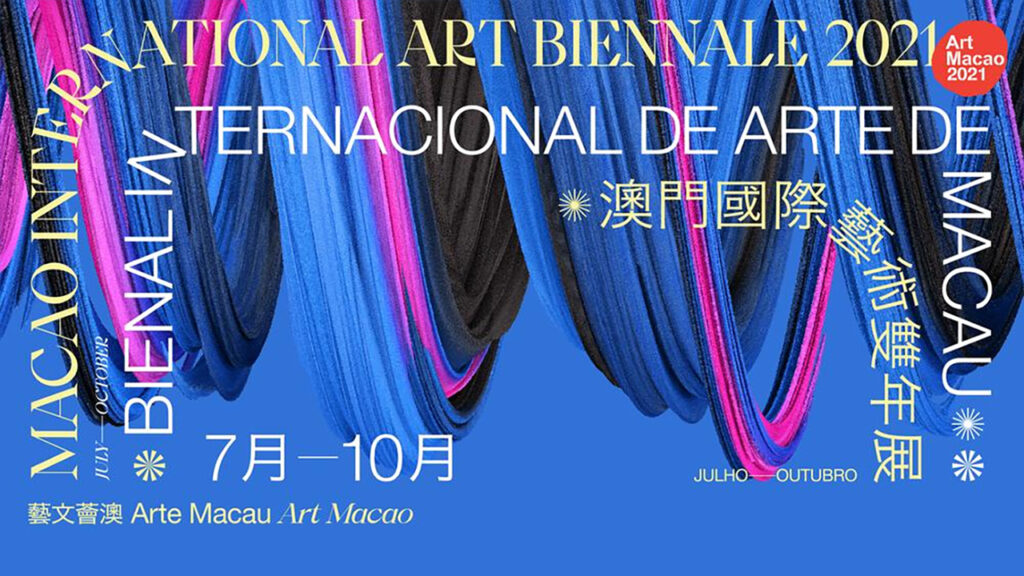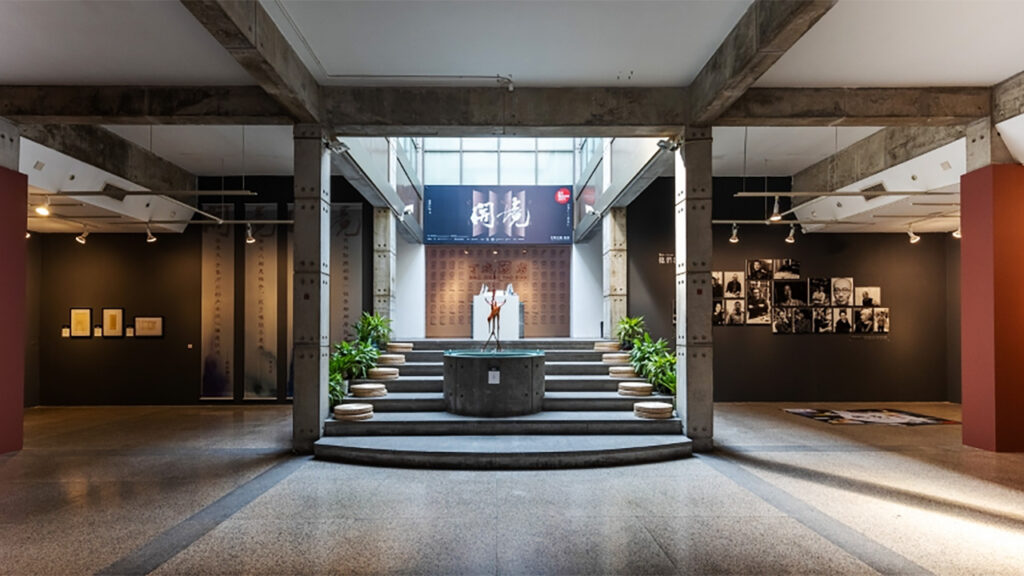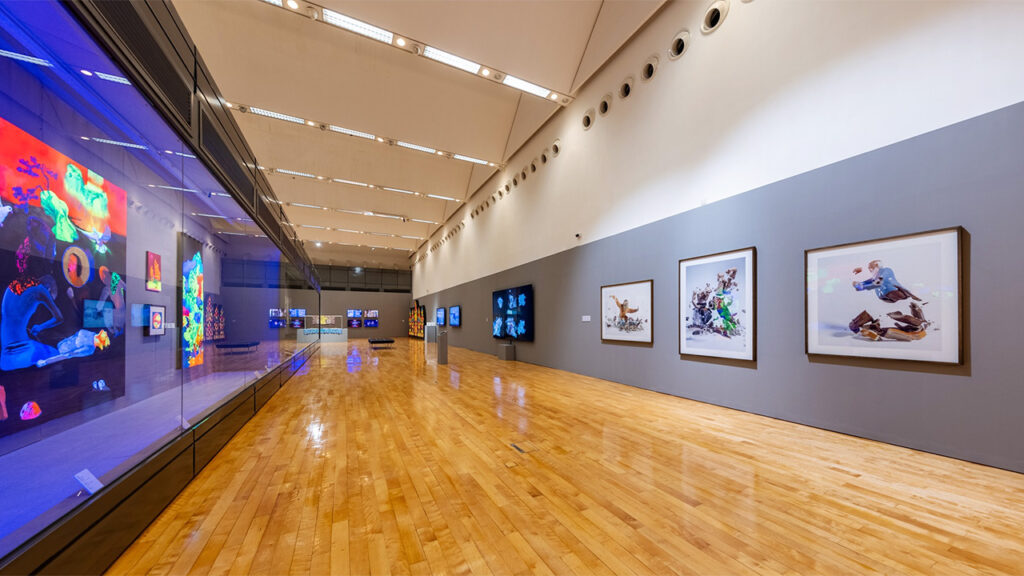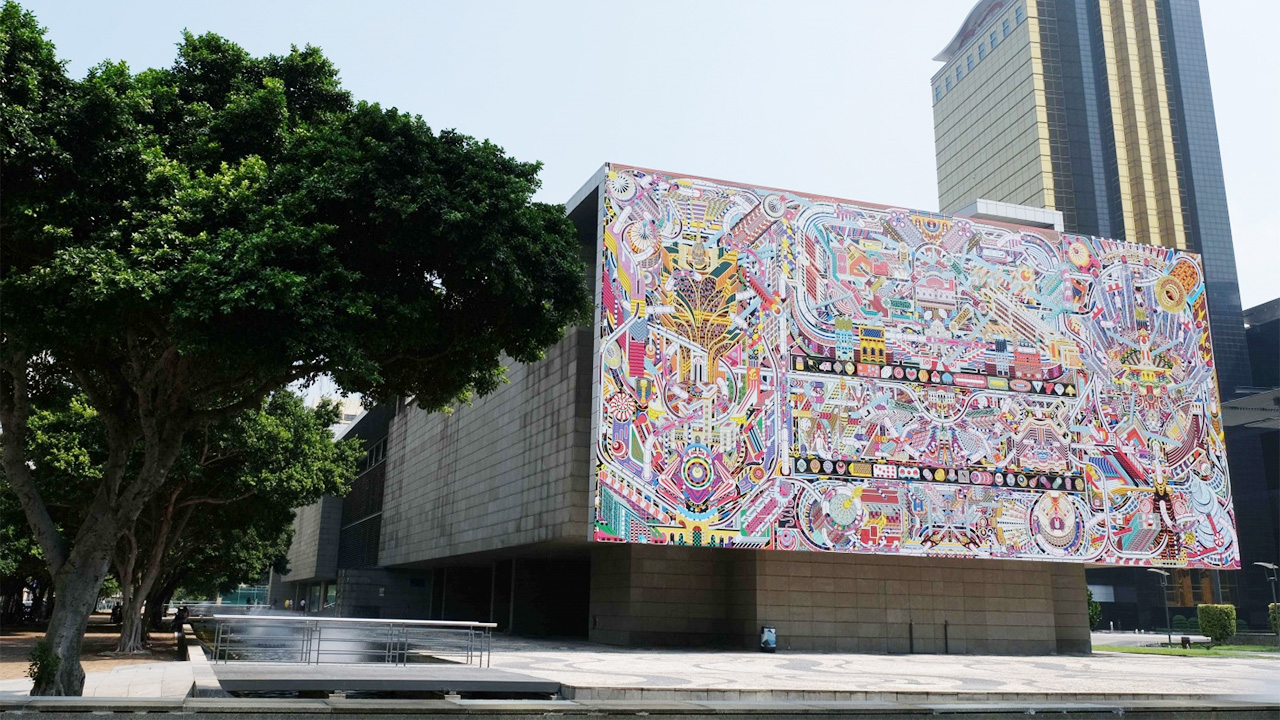Few destinations have reaped greater reward from the booming appetites of China’s middle class than Macau. The former Portuguese colony has long offered Mainlanders an ideal short-haul vacation: well-served by affordable flights, culturally distinct yet linguistically accommodating, and, of course, the only square of Chinese soil where gambling is legal.
In the decade leading up to the pandemic, Macau’s annual tourism revenue grew 150 percent with 25 million Chinese tourists pushing spending over $40 billion by 2018. But even before COVID-19 abruptly shuttered cross-border travel, the city’s tourism was recalibrating, or trying to, with the gaming industry facing increasing regulatory scrutiny.
Macau wishes to follow the lead of Las Vegas in diversifying its tourism appeal beyond roulette tables and slot machines. At a government review initiated in September, promoting non-gaming projects was one of nine key areas cited with art and culture playing an increasingly prominent role.

Art Macao signals the city’s push to diversify its economy, realigning itself with the arts and boosting its standing as a cultural destination. Image: Art Macao
Prime among these endeavors is Macao International Art Biennale, a four months-long, cross-city spectacle that’s openly trying to transform the image of Asia’s gambling capital into a regional cultural hub. The Biennale tapped influential Chinese artist Qiu Zhujie to curate an event that spans 25 locations, from cultural centers to hotel lobbies, and pulls in a breadth of stakeholders outside of cultural circles.
With the end of the Biennale approaching, Jing Culture & Commerce connected with Macau’s Cultural Affairs Bureau to find out what it was like hosting a mega art spectacle during a pandemic and what the event says about the direction of the city’s tourism economy.
For those unfamiliar with the Biennale, how would you explain its focus and mission?
Art Macao activities are a joint effort between government departments and major local corporations to organize art exhibitions in public cultural venues, public spaces, and major resorts. This year’s event is divided into six sections and runs from July to October. Thirty art exhibitions will be held at 25 locations. It continues our model of using the entire city as an art gallery and art garden.
What does it mean to host the Biennale during the pandemic?
At a time when many parts of the world are still impacted by the pandemic, Art Macao demonstrates the determination and responsibility of the SAR [Special Administrative Region] Government to create a better future through cultural endeavors. It also hopes to use art to sort out the historical context of globalization, examine the state of human existence, and discuss the possibilities of artistic governance.

Nanjing: City of Literature – Opening Up The Realm, a Creative City Pavilion at Art Macao. Image: Macau Cultural Affairs Bureau
Tell us about some of the Biennale’s highlights
One of China’s most influential contemporary artists, Qiu Zhijie is the chief curator of the event. The theme of the main exhibition, curated by Qiu, is Advance and Retreat of Globalization, reflecting on aspects of globalization and the individual, distance and proximity, security and happiness. The Creative City Pavilion has been added this year, inviting global cities through the UNESCO Creative Cities Network and includes Nanjing for literature, Wuhan for design, Linz [in Austria] for media arts, and Macao for gastronomy.
On an institutional level, what are the goals of the Biennale?
In the 1990s, the biennale model rapidly emerged around the world and was expected to renew a city’s atmosphere in economic and cultural ways. Biennales are generally institutional, international, experimental contemporary art exhibitions that reflect the development of contemporary art and cutting-edge exploration, which is exactly what Macao lacks at the moment.

Art in Macao, the theme exhibition of the Macao International Art Biennale 2021 at the Macao Museum of Art. Image: Macao Museum of Art
Could you speak about the Biennale’s role in diversifying the city’s economy?
The SAR Government has long attached importance to cultural development. It’s hoped the event will promote the development of cultural industries and drive the growth of surrounding industries. We also hope the Biennale adds to the image of Macao as a cultural city and enriches the tourism sector, and extends the city’s influence to establish Macao’s unique position among the cities in the Greater Bay Area.
Please expand on this point about changing Macau’s perception and position in the Greater Bay Area.
Art Macao is organized in the hope of supporting the development of local arts and creating a cultural brand with a local base and an international perspective. Macau has always played a pioneering role in the history of global cultural exchange. We hope Art Macao will grow into a biennale event with global influence and as the scale of the event gradually builds up, art units from the Greater Bay Area, other cities in China, and foreign countries will meet in Macau on a regular basis.



